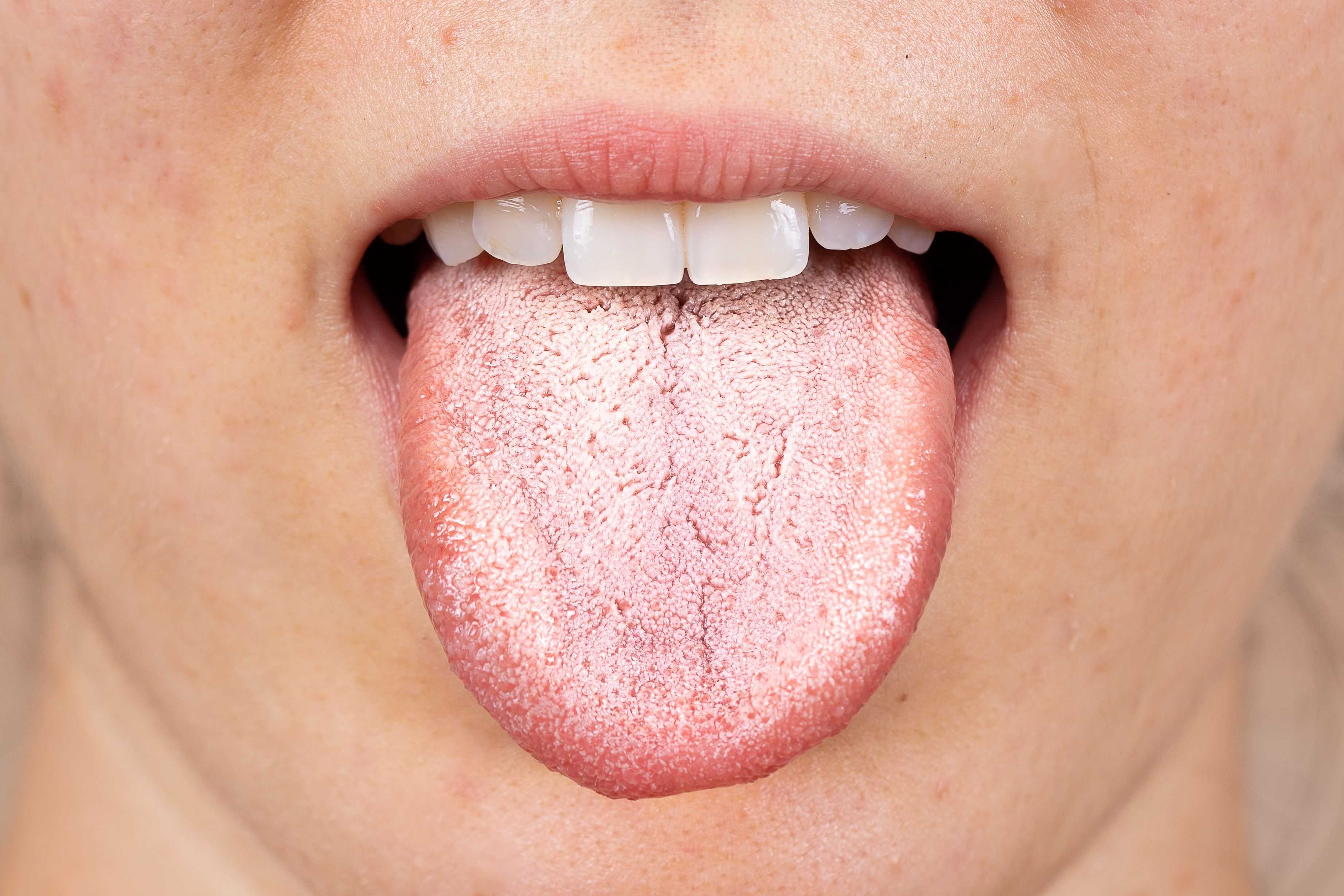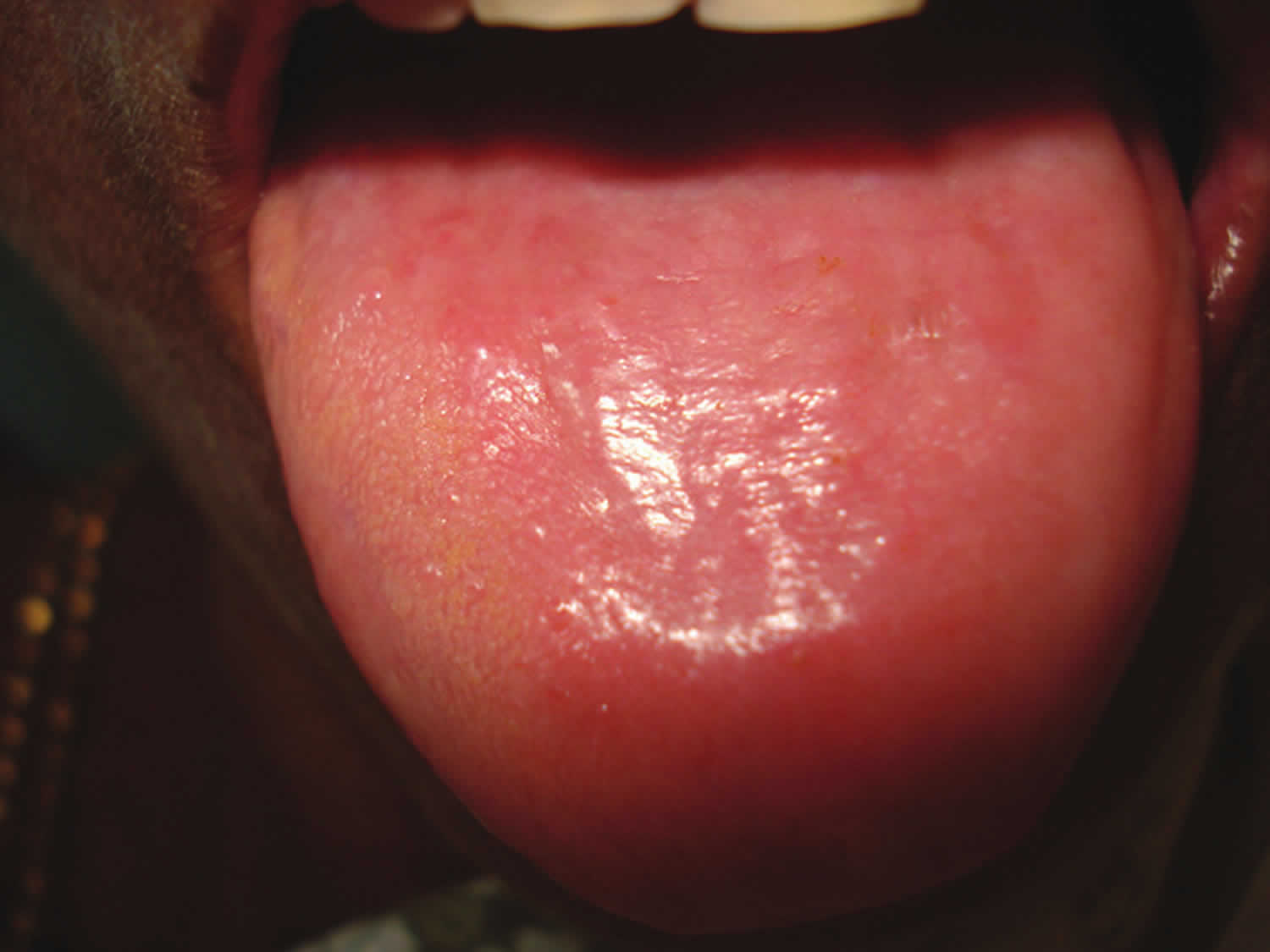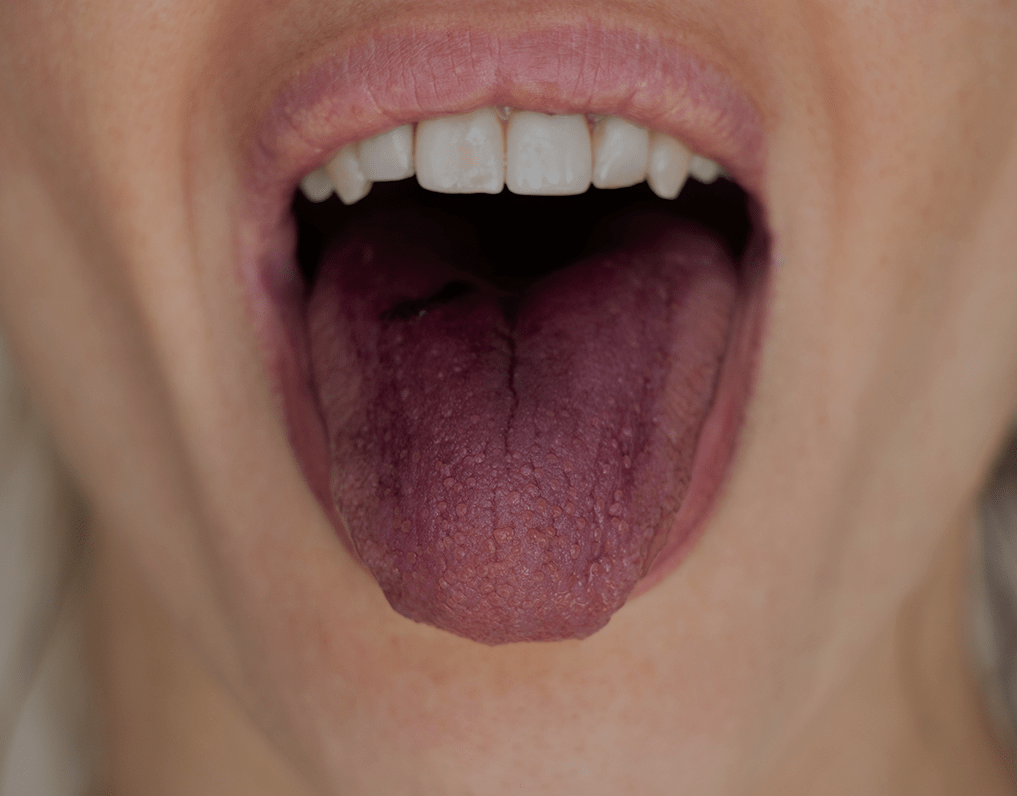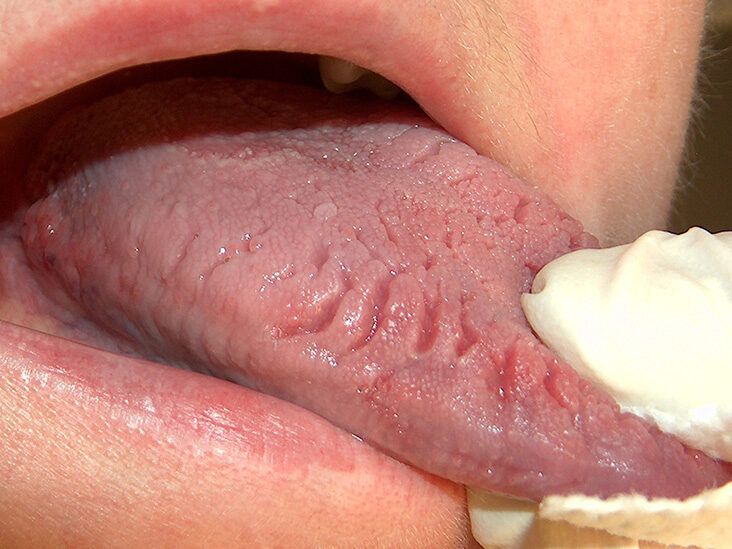Your tongue can be an important indicator of overall health. Changes in its color, texture, or appearance can sometimes signal underlying nutritional deficiencies or systemic health concerns. While these symptoms are not always serious, it’s essential to monitor them and consult a healthcare provider if they persist.
Below are four tongue conditions that are recognized by dental and medical professionals, along with possible causes, home care suggestions, and guidelines on when to seek medical advice. Information is based on verified guidance from reputable sources such as the Mayo Clinic, the Cleveland Clinic, and the American Dental Association (ADA).
1. White Coating on the Tongue
Possible Cause: Oral Thrush (Candidiasis)
A white or yellowish coating on the surface of the tongue can sometimes be a sign of oral candidiasis, a mild fungal infection caused by an overgrowth of Candida albicans, a naturally occurring yeast in the mouth.
Recognized Symptoms:
- Thick, creamy white or yellow coating on the tongue or inside the cheeks
- A burning or tingling sensation
- Unpleasant taste or mild bad breath
According to the Mayo Clinic, oral thrush is more common in people with weakened immune systems, those using inhaled corticosteroids, or individuals who have recently taken antibiotics. Source: Mayo Clinic – Oral Thrush
Suggested Prevention and Care:
- Gently brush your tongue twice a day using a soft-bristled toothbrush
- Rinse with a saltwater solution (½ tsp salt in 1 cup of warm water)
- Maintain a balanced diet and reduce intake of sugar and refined carbohydrates
- Include probiotic-rich foods like unsweetened yogurt to support oral flora
- Schedule regular dental checkups and maintain good oral hygiene

2. Red, Smooth, and Shiny Tongue
Possible Cause: Nutritional Deficiencies (Vitamin B12, Iron, or Folic Acid)
A tongue that appears red, glossy, and smooth may suggest a deficiency in essential vitamins and minerals, particularly vitamin B12, iron, or folate. These nutrients play a crucial role in red blood cell production and tissue repair.
Recognized Symptoms:
- Red, smooth, or shiny appearance
- Burning sensation or sensitivity to spicy or acidic foods
- Fatigue, pale skin, or other signs of anemia
According to the Cleveland Clinic, deficiencies in B12 or iron can impact the epithelial cells of the tongue, causing discomfort or inflammation. Source: Cleveland Clinic – Tongue Problems
Suggested Prevention and Care:
- Incorporate iron-rich foods like leafy greens, legumes, eggs, and lean meats
- Eat foods high in vitamin B12, such as fish, dairy, and fortified cereals
- Avoid alcohol and irritants that may exacerbate symptoms
- Talk to a healthcare provider about vitamin supplementation if dietary changes are insufficient

3. Cracked or Fissured Tongue
Possible Cause: Fissured Tongue (Benign Condition) or Geographic Tongue
A fissured tongue is characterized by visible grooves or cracks along the surface. This condition is generally harmless and can be a natural variation. However, it may occasionally be linked to dehydration, vitamin deficiencies, or autoimmune conditions like psoriasis.
Recognized Symptoms:
- Deep grooves or “cracks” that may be visible across the surface
- No pain unless food debris becomes trapped
- Occasional sensitivity to acidic or spicy foods
The American Academy of Oral Medicine describes fissured tongue as a benign and often hereditary condition. No treatment is typically needed unless discomfort occurs. Source: AAOM – Fissured Tongue
Suggested Prevention and Care:
- Use a soft toothbrush to gently clean the tongue and remove trapped food particles
- Stay well-hydrated throughout the day
- Avoid highly acidic or spicy foods that may irritate the tongue
- Practice routine oral hygiene to prevent bacterial buildup

4. Purple or Dark-Colored Tongue
Possible Cause: Circulatory Issues, Vitamin B2 Deficiency, or Low Oxygen Levels
A tongue that appears dark purple, blue, or purplish-gray may sometimes signal reduced oxygenation in the blood (known medically as cyanosis), or poor peripheral circulation. Less commonly, it could indicate a vitamin B2 (riboflavin) deficiency, which may impact skin and mucous membranes.
Recognized Symptoms:
- Purplish or bluish hue on the tongue
- Cold hands or feet
- General fatigue or dizziness
According to Healthline and Mount Sinai, a dark tongue can occasionally occur in colder climates or after the consumption of colored foods. However, persistent discoloration should be evaluated by a healthcare provider. Source: Mount Sinai – Cyanosis
Suggested Prevention and Care:
- Engage in moderate physical activity to improve circulation
- Eat a diet rich in vitamin B2, including milk, almonds, eggs, and green vegetables
- Avoid smoking, which may impair blood flow
- Seek medical advice if discoloration is persistent or accompanied by other symptoms

When to Consult a Healthcare Professional
While many tongue conditions are benign and temporary, it’s important to see a dentist or physician if you experience any of the following:
- Persistent symptoms lasting longer than two weeks
- Pain, swelling, or noticeable changes in texture
- Difficulty speaking, chewing, or swallowing
- Tongue discoloration that does not improve or worsens over time
- Accompanying systemic symptoms like fever, fatigue, or mouth sores
Timely evaluation can help detect nutritional imbalances, infections, or other medical concerns early.
General Oral Health Tips for a Healthy Tongue
To keep your tongue—and overall oral cavity—in optimal health, consider adopting these habits:
- Brush your tongue daily as part of your oral hygiene routine
- Use a tongue scraper to remove debris and bacteria
- Stay hydrated, as dehydration can lead to dry mouth and increased risk of infection
- Avoid tobacco products and limit alcohol intake, both of which can contribute to oral diseases
- Visit a dental professional every six months for a routine checkup and cleaning

Final Thoughts
Your tongue is a window into your health. While minor changes are often temporary, persistent or unusual symptoms should not be ignored. Practicing good oral hygiene, maintaining a balanced diet, and seeking regular medical and dental evaluations are key to preventing complications and staying well.
For additional information on tongue health and related symptoms, consult reputable sources:
- Mayo Clinic – Oral Health
- Cleveland Clinic – Oral Care
- American Dental Association
- Mount Sinai Health Library
